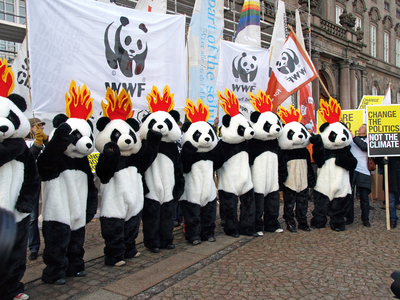Climate Change


Climate Change
Climate change today is extremely urgent. The climate of our planet is changing and changing fast enough, that does not negate already scientists.
Climate change, “Global Climate Change”, understood as the restructuring of all geosystems.
Effects of climate change are already evident now, including in the form of increased frequency and intensity of severe weather events, the spread of communicable diseases. They cause considerable economic damage, threaten the existence of a stable ecosystem, as well as the health and lives of people. Conclusions of scientists say, that the ongoing climate change may in the future lead to even more dangerous consequences if humanity does not take appropriate preventive measures.
Meteorological observations show that over the past 100 years the average temperature of the Earth’s surface has increased by 0.74 ° C, and its growth rate is gradually increased.

Reasons for changes
The observed changes in the Earth’s climate system have been linked to abnormal growth in atmospheric concentrations of so-called “greenhouse gases” (carbon dioxide, methane, nitrous oxide, and others.). These gases trap infrared radiation emitted by the Earth’s surface, thereby creating a “greenhouse effect”. The phenomenon of the greenhouse effect keeps the Earth’s surface at the temperature at which the possible emergence and development of life. If the greenhouse effect, the average temperature of the earth would be much lower than it is now.
Intergovernmental Panel on Climate Change(IPCC) – the most authoritative international body that brings together thousands of scientists from 130 countries – presented its Fourth Assessment Report, which contains the general conclusions about the past and present climate changes and their impact on the environment and people, as well as on possible measures to counteract such change. This report says that with 90% probability of the observed changes in climate associated with human activities.
Climate change is already happening and according to forecasts of scientists in the future will probably only increase. It is therefore necessary to take measures to counteract these changes.
Floods in Europe, hurricane in Philippines, heavy snow in USA, earthquake in Ocean pacific…, these are just some examples of the impact of climate change. Extreme natural phenomena beat all records in almost all regions of the world. Natural disasters entail economic consequences. Every year the damage caused by natural disasters is increasing.
Global implications
- Changing the frequency and intensity of precipitation. In general, the climate on the planet will become more humid.
- Sea-level rise is projected to scientists for XXI century sea level rise will be up to 1 m. In this case, would be the most vulnerable coastal areas and small islands.
- Melting glaciers – Satellite data show that, since the 1960s., There was a decrease in snow cover is about 10%.
- Threat to ecosystems, species and ecosystems have already begun to respond to climate change. Migratory birds have become used to arrive later in the spring and autumn fly away.
- Human health, climate change, scientists project that will increase the risks to human health, especially of the poor people.
How to help and what to do
How can we keep climate change, until the process has become irreversible? How to prevent the adverse effects observed and projected climate change? Alas, but completely prevented the projected climate change to humanity is unlikely. However, you can try to mitigate climate change.
* Limiting and reducing the consumption of fossil carbon fuels (coal, oil, gas)
* Improve the efficiency of energy consumption
* Implementation of energy saving measures
* Greater use of non-carbon and renewable energy
* Development of new environmentally friendly and low-carbon technologies
* Through the prevention of forest fires and reforestation, as forests – natural sinks of carbon dioxide from the atmosphere
Some of these measures are not enough. Effects of climate change are already being felt, therefore, now have to try to adapt (adapt) and to minimize their negative impact, organize activities to adapt to changing conditions. That is, adaptation measures can be directed at reducing climate risks, and the extraction of the potential benefits of climate change.
Examples of such actions are more economical use of scarce water resources, adapting existing building standards with the calculation of the stability of the buildings to the effects of future climate conditions and extreme weather events, construction of protective walls against floods, raising levees to protect against rising sea levels, drought-resistant plants, selection of forestry species and forestry practices that are less vulnerable to hurricanes and fires.
Active public policy is essential to combating climate change. An integrated approach to the development of adaptation measures that combines science, technology, and decision-makers will help to reduce the vulnerability of societies and economies of the countries to climate change.

